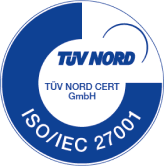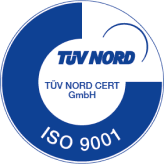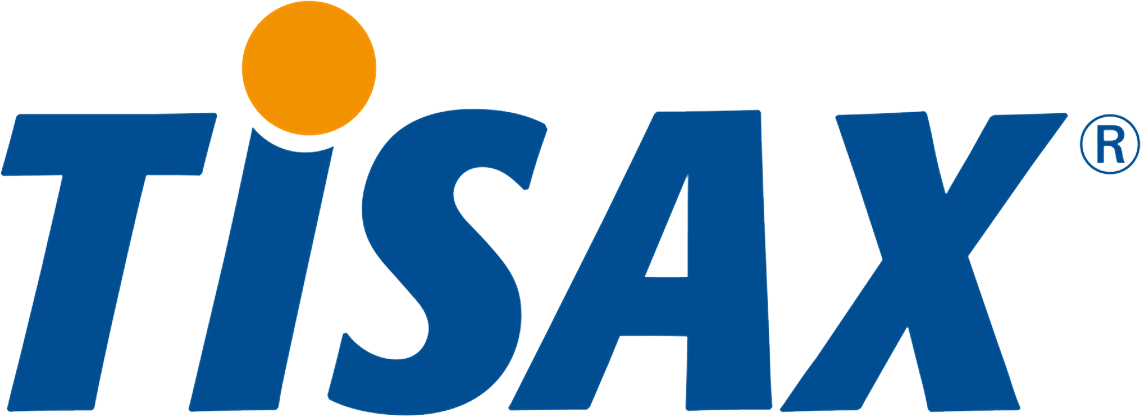Bambus Group CSR Declaration
Bambus Group’s (“the Company’s”) CSR vision recognizes that an enterprise and the society in which it operates are mutually dependent. That industry growth is proportional to the equitable development of the country, its environment, and its people, regardless of religion, race, ethnicity, age, gender, sexual orientation, economic status, and other diverse backgrounds.
In order to implement the CSR, Bambus has initiated the certification by the international body in order to prove to all interested parties that Bambus operates with high standards of CSR requirements although our company is certified with ISO:9001, ISO:27001, ISO:20252, and GDPR assessed.
The Company also believes that all-around development can be brought about by paying attention to regions, groups, and backward people with special needs and helping citizens acquire valuable skills.
1. Business Integrity
■ The Bambus Group is committed to conducting its business operations with integrity, fairness, and transparency, essentially based on internationally recognized guidelines, and will comply with applicable legal, regulatory, ethical, and social requirements of the countries, regions, cities, and other jurisdictions, in which it conducts business.
■ The Bambus Group has approved Quality Manual where is specified the business integrity, people, industry, environments, complying with national and international laws and regulations.
1.1 Prohibition of Bribery
■ The Bambus Group Group will not tolerate any form of bribery or corruption as specified in the Code of Conduct published by Bambus on all platforms.
■ The Bambus Group requires all directors, officers, and employees to comply with its group-wide Anti-bribery Policy in providing or accepting cash, gifts, entertainment, meals, travel expenses, accommodation fees and related charges, donations, or other benefits to or from public employees, customers, and suppliers, either directly or indirectly. Summarized below are key elements of the Bambus Group’s Anti-Corruption Policy:
■ Offering cash, coupons, or anything of monetary value to public employees and customers is not permitted for any reason. Acceptance of cash, coupons, or anything of monetary value from suppliers is not permitted for any reason.
■ Gifts, meals, entertainment, travel expenses, donations, or other benefits, either offered to public employees and customers or received from suppliers, are subject to careful scrutiny under rigorous internal standards to determine if such exchanges fall within a normal and appropriate standard of business courtesy and are necessary for the normal progress of the business. Strict adherence to internal guidelines is required in making decisions regarding the selection and hiring of agents.
■ The AML Policy sets out the minimum control standards to all Bambus Group entities and employees, requiring them to conduct business in accordance with applicable AML laws, rules, and regulations.
1.1.1 General anti-bribery and corruption training
■ Internal communication and regular training have traditionally been the main ways in which our Group conveys the anti-bribery policy and programme to all employees. An integrated approach brings together all aspects of engagement with employees across their activities with the Group. In addition, dedicated, and tailored anti-bribery training is given to everyone in high-risk functions.
1.2 Fair Competition
■ The Bambus Group will not engage in any unlawful or unethical business practices, including but not limited to: All forms of extortion and embezzlement Any activity that involves, uses, or benefits anti-social forces The Bambus Group will not engage in any unfair business practices, including but not limited to:
Abuse of superior bargaining position, or imposing unreasonable disadvantages on supply chain partners. Conspiracy, collusion with competitors, or any other conduct obstructs fair and free competition.
1.3 Information Disclosure
■ The Bambus Group will disclose material information regarding labor, health, safety, environmental practices, business activities, structure, financial situation, and performance according to applicable regulations and prevailing industry practices.
■ The Bambus Group is already certified with ISO:27001 and regularly audited by certification bodies to ensure it operates with all information disclosure requirements.
■ The Bambus Group has built the infrastructure to meet all expectations.
■ The Bambus Group has approved Privacy Policy published on its website.
■ The Bambus Group always practices NDA agreements with all parties, including employees and collaborators.
1.4 Intellectual Property Rights
■ The Bambus Group will protect its intellectual property rights and, at the same time, ensure that its inventions do not infringe on the intellectual property rights of others.
■ The intellectual property rights are also specified in the service agreement with the parties
1.5 Information Security
■ The Bambus Group ensures the proper handling of confidential corporate data by maintaining appropriate procedures for safeguarding its information assets from unauthorized access, misuse, tampering, disclosure, or leakage, as specified in the Data Protection Policy. The key elements of Bambus Group’s information security management system include the following:
Maintenance and improvement of a security framework aimed to protect corporate information assets and prevent loss to the Bambus Group and its related stakeholders. Management and protection of customer/supplier data and employee personal information. Compliance with privacy and information security laws and regulatory requirements when personal information is collected, stored, processed, transmitted, and shared.
1.6 Whistle-blowing System
■ The Bambus Group has an internal reporting system that all directors, officers, and employees (including regular, part-time, contingent, temporary, and limited-term employees) are encouraged to use to report and raise concerns about any activity suspected of being in violation of laws, regulations, or Bambus Group’s policies and rules, which prohibit unethical practices such as accounting fraud, bribery, and corruption, as well as health and safety breaches.
■ Pursuant to Law no. 06 / L-085 on Protection of Whistleblowers, Executive Director has issued appointed the responsible person regarding the whistle-blowing process within the company.
1.7 Service Safety
■ The Bambus Group pays utmost attention to service safety in all aspects of business, including planning, development, design, manufacturing, sales, and after-sales service. In addition, the Bambus Group is committed to complying with all safety standards based on laws and regulations while constantly striving to surpass those standards to ensure continuous compliance.
■ The Bambus Group will promptly investigate any service safety issue, identify the root cause(s) by tracing the production history, and ensure notifications to the customers concerned.
1.8 Quality Management System
■ The Bambus Group will continuously seek to improve the quality of its services through the establishment, maintenance, and modification of an effective quality management system and PDCA (Plan-Do-Check-Act) cycle.
■ The Bambus Group has been implementing the QMS system since 2018, is certified by TUW Nord, and is audited regularly. Quality is a high priority of the top management, and it’s a direct statement regarding the quality management system.
2. Respect for Human Rights and Labor Practices
■ Bambus Group’s business operations come into contact with different social, political, financial, legal, and economic systems and cultures, traditions, and languages in the global market. Therefore, the Bambus Group needs to have solid foundations to ensure that human rights are respected and that all individuals can fulfill their capabilities in the workplace.
■ The Bambus Group has specified respecting the human rights and labor practices in the Personnel Policy.
■ The Bambus Group addresses the increasing diversity of human rights issues through a commitment to existing international guidelines, including the UN Guiding Principles on Business and Human Rights, the UN Global Compact, the UN Universal Declaration of Human Rights, and the ILO Declaration on Fundamental Principles and Rights at Work.
2.1 Forced Labor
■ The Bambus Group employs people based only on their own free will. It never tolerates forced, debt bonded labor, slavery, or human trafficking in its business or supply chain.
■ The Bambus Group does not hold, destroy, confiscate or deny access by employees to their identity or immigration documents, such as government-issued identification, passports, or work permits.
2.2 Child/Young Labor
■ The Bambus Group complies with all applicable local and international regulations on preventing child labor and the protection of young workers.
■ The Bambus Group complies with the minimum age limit defined by national laws or the International Labour Organization (ILO), whichever is higher.
2.3 Discrimination and Inhumane Treatment
■ The Bambus Group issued in Personnel Policy values a vibrant and diverse workforce and acts to eliminate discrimination over job offers and employment, and shall secure equal opportunities and fair treatment in the workplace.
■ The Bambus Group is committed to providing an environment free from discrimination based on race, color, age, gender, sexual orientation, gender identity and expression, ethnicity or national origin, disability, pregnancy, religion, political affiliation, union membership, or marital status in hiring and employment practices such as wages, promotions, rewards, and access to training.
■ The Bambus Group takes steps to ensure that there is no harsh or inhumane treatment, including any physical, sexual, psychological, or verbal harassment or abuse against employees, suppliers, or vendors.
2.4 Wages and Benefits
■ The Bambus Group ensures that compensation paid to employees complies with all applicable wage laws, including those relating to minimum wages, overtime pay, and legally mandated benefits, and does not permit illegal, unjustified wage deductions as a disciplinary measure.
■ For each pay period, the Bambus Group provides each employee with a wage statement that includes sufficient information to verify accurate compensation for work performed.
2.5 Working Hours and Holidays
■ The Bambus Group complies with all applicable laws and regulations regarding overtime and maximum working hours. Furthermore, it implements corrective measures in situations where the number of hours worked by employees, including overtime, repeatedly exceeds 40 hours per week specified in the employment agreement.
■ Unless otherwise provided by applicable local law, the Bambus Group provides all employees with a minimum of one day off per week or every seven-day period. This rest period is in addition to any annual leave provided under national legislation and practice.
2.6 Right of Association and Collective Bargaining
■ The Bambus Group respects the right of all employees to form and join trade unions of their choosing, bargain collectively, and engage in peaceful assembly. It also respects the choice of employees to refrain from such activities. Many Bambus Group employees are members of various associations such as sports, walking, recreation, etc.
■ The Bambus Group is committed to maintaining a work environment where employees and their representatives can openly communicate and share ideas and concerns with management regarding working conditions and management practices without fear of discrimination, reprisal, intimidation, or harassment.
3. Harmony with the Environment
■ The Bambus Group recognizes that environmental responsibility is integral to providing world-class services. In manufacturing operations, The Bambus Group is under a duty to minimize its adverse effects on the community, environment, and natural resources while safeguarding the health and safety of the public. Environmental adaptability enables a business to comply with new environmental regulations and market demands and timely commercialize new environmentally conscious services and solutions.
3.1 Environmental Management System
■ The Bambus Group has established, maintains, and manages an appropriate environmental management system and continues to improve it to contribute to global environmental conservation and environmental load reduction.
3.2 Environmental Conservation Activities and Environmental Load Reduction
■ The Bambus Group aims mainly to reduce resource and energy use, greenhouse gas emissions (the leading cause of climate change), other emissions into the atmosphere, water use (intake), total solid waste, and effluent.
■ The Bambus Group measures to prevent pollution at the source, control pollution, and promote recycling and reuse by local laws and other relevant laws and regulations.
Bambus Group’s approach toward the effective use of resources includes
a) Optimization of the use of resources Curtail the use of natural resources, including water, forests, and metals. Limit the number of packaging materials used. Reduce inputs in production processes. Reduce emissions and minimize waste generation in production processes.
b) Reuse of resources Simplify reuse methods. Produce long-life services.
c) Recycling of resources Use recycled materials. Reuse parts.
3.3 Environmental Permits and Reports
■ The Bambus Group obtains all necessary environmental permits, approvals, and registrations keep them up to date and complies with operational and reporting requirements.
3.4 Pollution Control and Resource Use Reduction
■ The Bambus Group will manage pollution sources, use pollution control equipment, and minimize pollutant emission and waste generation through process changes in production, maintenance, and equipment management. Moreover, The Bambus Group works to conserve natural resources, including water, fossil fuels, minerals, and forest services.
3.5 Hazardous Substances
■ The Bambus Group clearly identifies chemicals that have a harmful impact on the human body and the environment by labeling their containers, and ensuring that they are safely handled, transferred, stored, used, recycled, reused, and disposed of.
3.6 Solid Waste
■ The Bambus Group identifies solid waste (non-harmful waste) and works to manage, reduce and recycle it.
3.7 Emissions into the Atmosphere
■ The Bambus Group confirms the physical properties of ore disposal, including volatile organic chemicals, aerosols, corrosive agents, microparticles, ozone-depleting substances, and calcined by-services generated during production processes. It implements regular monitoring, management, and disposal of them. At the same time, the Bambus Group works to monitor the functionality and effectiveness of the emissions management system.
3.8 Materials Restrictions
■ The Bambus Group adheres to all applicable laws, regulations, and customer requirements regarding the prohibition or restriction of specific substances in products and manufacturing, including labeling for recycling and disposal.
3.9 Water Management
■ The Bambus Group makes all possible efforts to improve a water management system that monitors water sources’ water intake. Effluent discharge analyzes their characteristics and puts the results of monitoring and analysis in writing to reduce water use and effluent discharge.
■ The Bambus Group also takes reasonable measures to prevent pollutants from entering waterways.
3.10 Energy Consumption and Greenhouse Gas Emissions
■ The Bambus Group keeps track of its energy consumption and greenhouse gas emissions. It promotes efforts to reduce them through continuous energy efficiency improvements.
3.11 Environmentally Conscious Design and Life Cycle Assessment
■ The Bambus Group assesses the environmental load generated through the lifecycle of products, from raw material collection to manufacturing, distribution, and disposal of products. It works to develop products with less environmental impact.
■ The Bambus Group has a defined working environment that meets service requirements.
■ The Bambus Group has an adequate workspace tailored to the demands of the job and the needs of the employees. The exterior contractor maintains the hygiene of the workrooms. All employees are responsible for the uprightness and hygiene of their workplace.
■ In the workshops, chemical, physical and biological conditions are provided for work at a level that meets the norms of occupational safety and working environments legally defined.
■ The lighting is tailored to the requirements of individual workplaces. The air conditioning system controls the microclimate. In addition, the company’s premises are provided with adequate anti-fire protection.
3.12 Conservation of Biodiversity
■ The Bambus Group gives sufficient consideration to biodiversity by conserving animals and plants on the verge of extinction.
3.13 Disclosure of Environment-related Information
■ The Bambus Group discloses its efforts and results regarding environmental management regularly as a means to establish a good relationship with stakeholders.
4. Workplace Health and Safety
■ The Bambus Group is committed to ensuring occupational health and safety to protect employees from hazards and risks associated with its operations.
■ The Bambus Group takes reasonable care. Its employees are not assigned unsafe work to comply with government health and safety acts, regulations,standards, and instructions based on ILO Guidelines on Occupational Safety and Health and the key elements OHSAS 18001.
■ The Bambus Group emphasizes ongoing worker input and education, which are essential in identifying and solving health and safety issues in the workplace.
■ The Bambus Group is committed to providing safe and healthy working conditions for its employees by applicable laws in the Republic of Kosovo.
■ Employees are obliged to take an active part in maintaining a safe and healthy work environment and take care of their safety and health at work and that of their co-workers.
4. 1 Occupational Health and Safety Management System
■ The Bambus Group is committed to establishing, maintaining, and improving written policies and procedures to control health and safety risks in the workplace.
4.2 Occupational Safety
■ The Bambus Group continues to assess health and safety risks and prevent employee exposure to potential safety hazards (e.g., electrical and other energy sources, fire, vehicles, and fall hazards) through proper design, engineering, and administrative controls, preventative maintenance, and safe work procedures (including lockout/ tag out), along with ongoing safety training. Where hazards cannot be adequately controlled by these means, employees are provided with appropriate, well-maintained, personal protective equipment.
■ The Bambus Group provides continual employee training about risks associated with workplace hazards and encourages reporting of safety concerns.
4.3 Emergency Preparedness
■ The Bambus Group constantly seeks to identify and assess potential emergencies and events to minimize harm to life, the environment, and property by implementing emergency plans and response procedures, including emergency reporting, employee notification and evacuation procedures, training and drills, appropriate fire detection and suppression equipment, adequate exit facilities, and recovery plans.
■ All permissions have an exit plan.
4.4 Occupational Injury and Illness
■ The Bambus Group ensures that procedures and systems are in place to prevent, manage, track and report occupational injury and illness, including provisions to
• encourage employee reporting;
• classify and record injury and illness cases;
• monitor the health of employees and help them to maintain and manage their health;
• provide medical treatment as necessary;
• investigate cases and implement corrective actions to eliminate their causes; and
• facilitate the return of workers to work.
4.5 Physically Demanding Work
■ The Bambus Group safeguards its employees from avoidable injuries or illnesses attributable to physically demanding work by taking reasonable measures, such as offering workers regular breaks, preparing work assistance tools, and dividing work into smaller tasks. Physically demanding
tasks can be characterized as follows:
• manual material handling;
• heavy or repetitive lifting;
• prolonged standing, and
• highly repetitive or forceful assembly tasks.
■ The Bambus Group also takes reasonable steps to keep pregnant women/nursing mothers from overly harsh working conditions.
4.6 Industrial Hygiene
■ The Bambus Group identifies, evaluates, and controls the health risks of chemical exposure to biological and physical agents and uses preventive measures, including protective equipment programs, to protect workers from overexposure.
4.7 Sanitation
■ The Bambus Group provides workers with access to clean toilet facilities, drinking water, sanitary food preparation, storage, and eating facilities.
4.8 Health and Safety Communication
■ The Bambus Group provides workers with appropriate workplace health and safety training, where possible, in their primary language, and post health and safety-related information in the facility.
■ Training of security in the working environment is conducted regularly for all employees.
5. Harmony with Society
■ Corporate social responsibility encompasses nearly every interaction a business has with society.
■ The Bambus Group realizes that its responsibility goes beyond satisfying the interests of its immediate external stakeholders to include embracing and supporting the broader community interest.
■ The Bambus Group also values the idea of achieving sustainable growth by aligning business strategies with some of the internationally-agreed universal goals aimed to resolve social/environmental problems at global and regional levels.
5.1 Community Relations
■ The Bambus Group strives to build a good, sound relationship with the local community that its business may impact through open and honest communication and by taking the views and concerns of the community into account in its work.
5.2 Approach toward Universal Social/Environmental Challenges
■ The Bambus Group embraces the route to sustainability proposed in the United Nations Sustainable Development Goals (SDGs), encompassing 17 goals tackling major global issues, including climate change, environmental destruction, poverty, shortages of energy and natural resources, and health problems. The Bambus Group makes a conscious effort to identify and prioritize new business opportunities within particular social/environmental issues in ways that would help advance the economic and social conditions of the communities in which it operates
6. Framework for Ensuring Efficacy
■ The Bambus Group has established and maintains a management system that translates the concept of this Declaration into viable courses of action. The management system is designed to ensure:
(a) compliance with applicable laws, regulations, and customer requirements related to The Bambus Group’s operations and services;
(b) conformance with this Declaration, and
(c) identification and mitigation of operational risks related to the issues and guidance included in this Declaration.
6.1 Company Commitment
■ The Bambus Group maintains its social and environmental responsibility policy statements affirming its commitment to compliance and continual improvement. The policy statements are posted in its facilities in the local language, where possible.
6.2 Management Accountability and Responsibility
■ The Bambus Group identifies senior executives and company representatives [s] responsible for ensuring the implementation of the management systems and associated programs.
■ Senior management reviews the status of the management system regularly and conducts management reviews.
6.3 Risk Assessment/Management
■ The Bambus Group has developed a process to identify the legal compliance, environmental, health and safety, labor practice, and ethics risks associated with Bambus Group’s operations. To control the identified risks and ensure regulatory compliance, the Bambus Group also determines the relative significance for each risk and implements appropriate procedural and physical controls.
■ Risk assessment/management is ongoingly processed performed by the company’s direction based on the Quality Manual and Risk Assessment and Risk Treatment Methodology.
6.4 Improvement Objectives
■ The Bambus Group has established written performance objectives, targets, and implementation plans to improve its social and environmental performance and also performs a periodic assessment of its performance in achieving those objectives based on the Procedure for Corrective Action.
6.5 Training
■ The Bambus Group has organized programs for training managers and workers to implement its policies, procedures, and improvement objectives and meet applicable legal and regulatory requirements.
■The Bambus Group has issued the training procedure that specifies the starting steps for training.
6.6 Communication
■ The Bambus Group has developed and maintains a process for communicating clear and accurate information about its policies, practices, expectations, and performance to its employees, suppliers, and customers.
6.7 Worker Feedback and Participation
■ The Bambus Group has developed ongoing processes to assess employees’ understanding of the practices and conditions covered by this Declaration, obtain feedback, and foster continuous improvement. ■ The survey regarding employee satisfaction is conducted regularly.
6.8 Audits and Assessments
■ The Bambus Group performs periodic self-evaluations (internal audits) to ensure compliance with legal and regulatory requirements, the content of this Declaration, and contractual customer requirements related to social and environmental responsibility.
■ The Bambus Group’s internal self-evaluation efforts are occasionally complemented by external evaluations (second- or third-party audits) to exploit knowledge of industry best practices, either upon customer’s request or on The Bambus Group’s initiative.
■ Internal Audit is performed regularly, at least once per year, by the audit team appointed by management. The audit team is certified.
6.9 Supply Chain Involvement
■ The Bambus Group communicates the requirements of this Declaration to its leading direct suppliers. As a result, it expects a roll-out to deeper levels in the supply chain.




